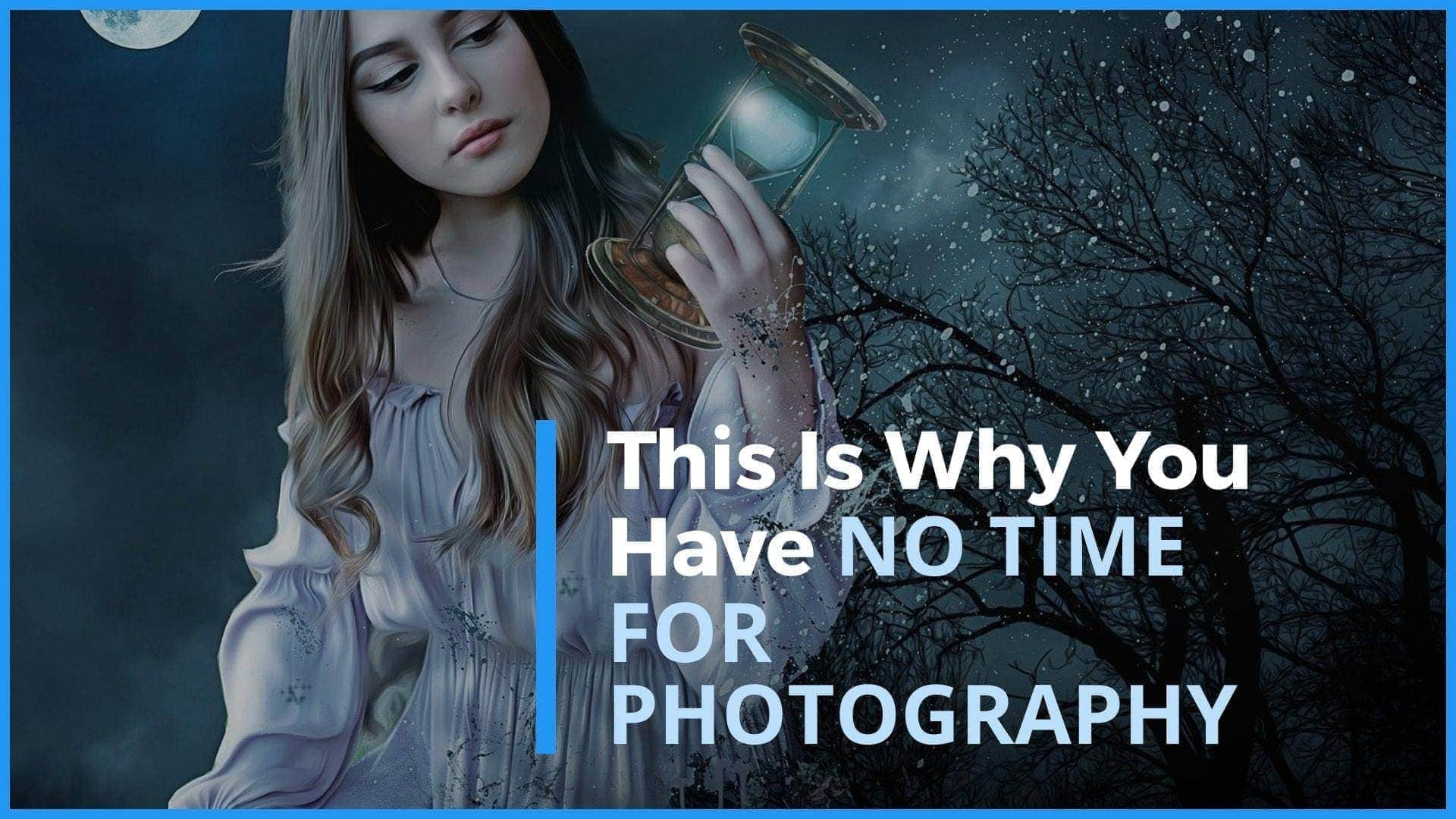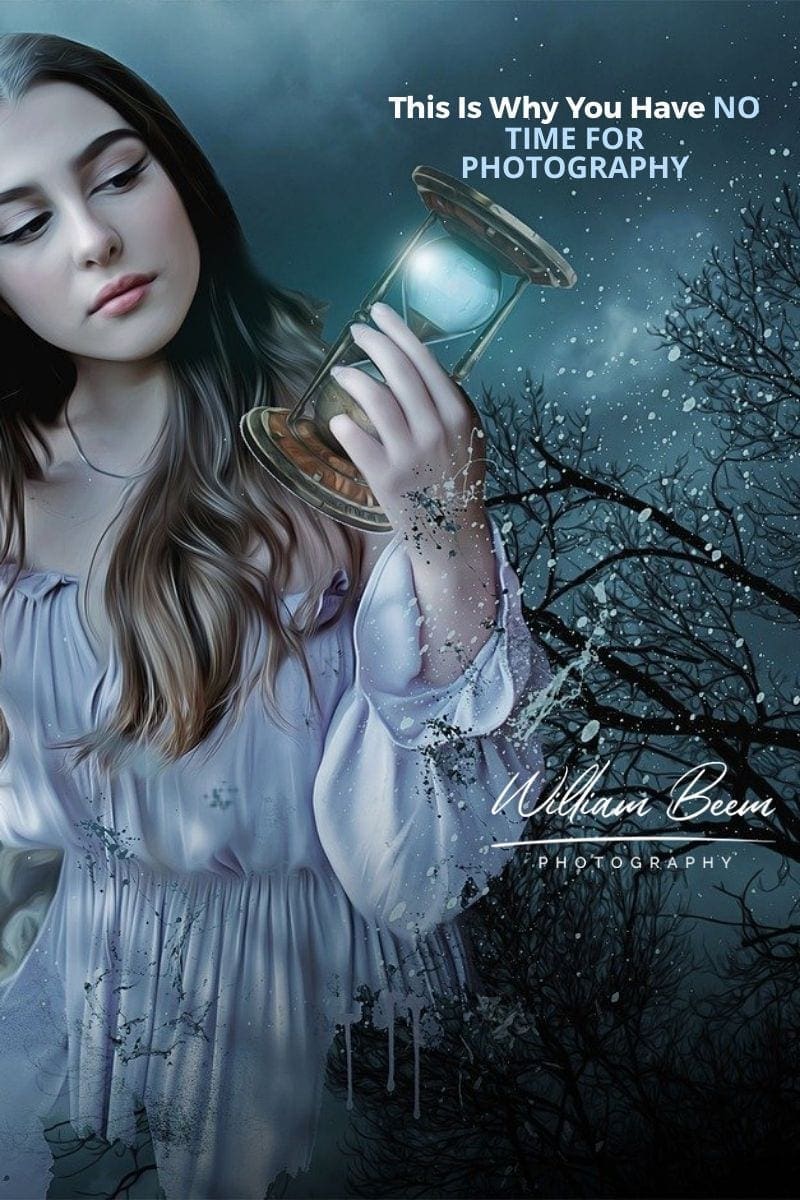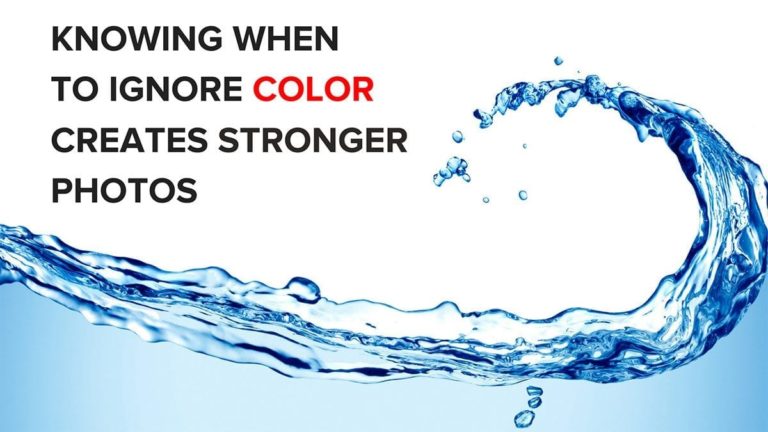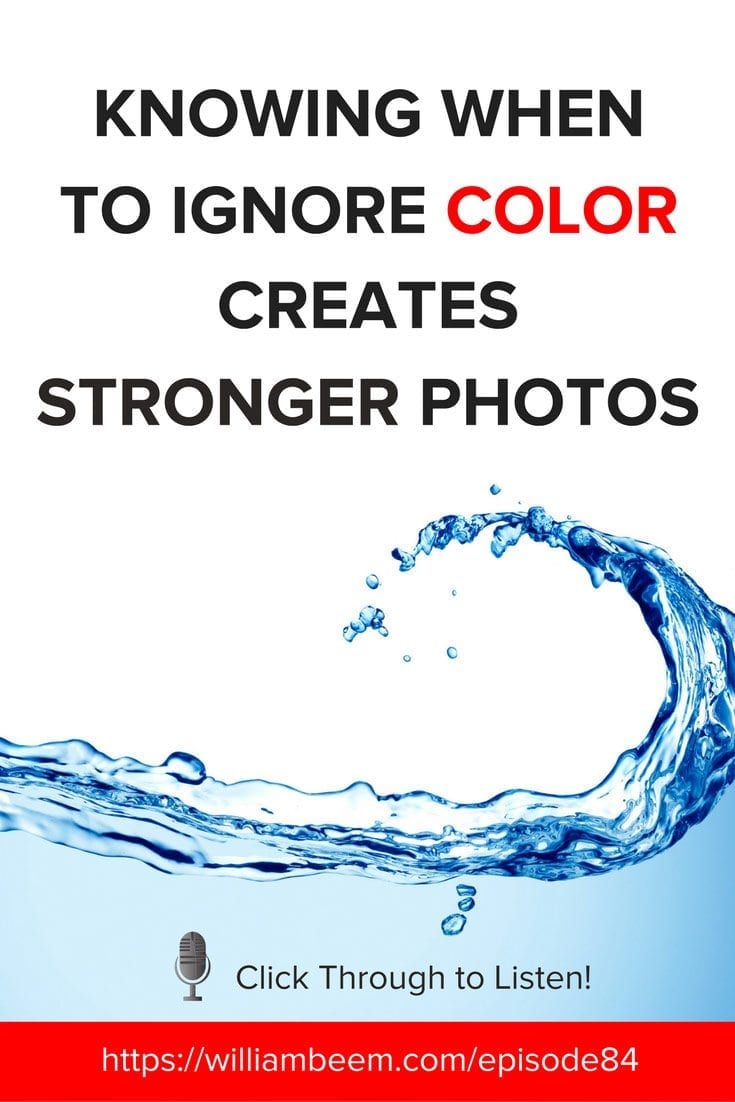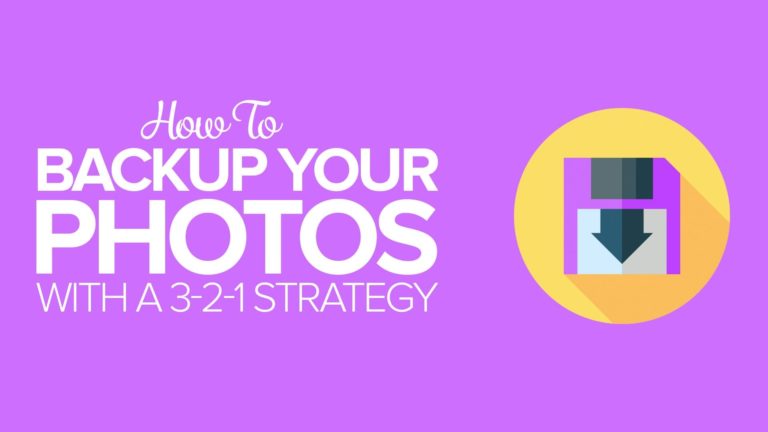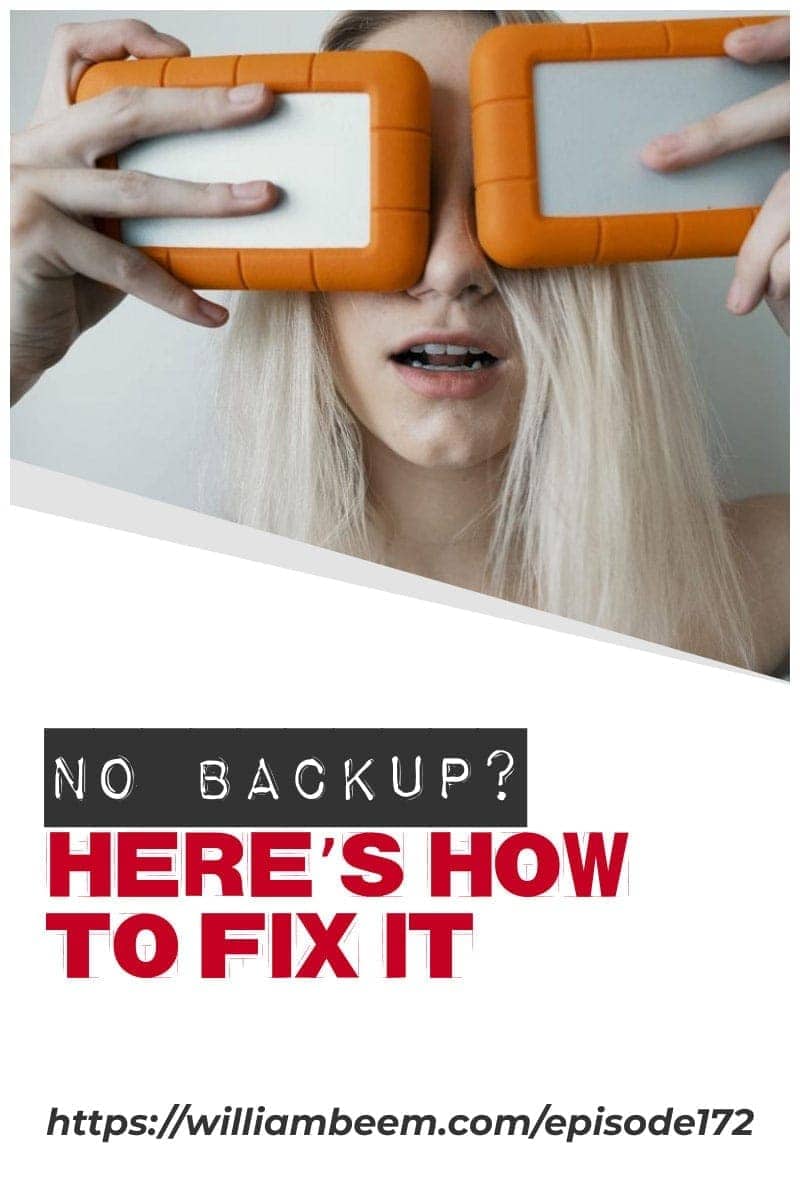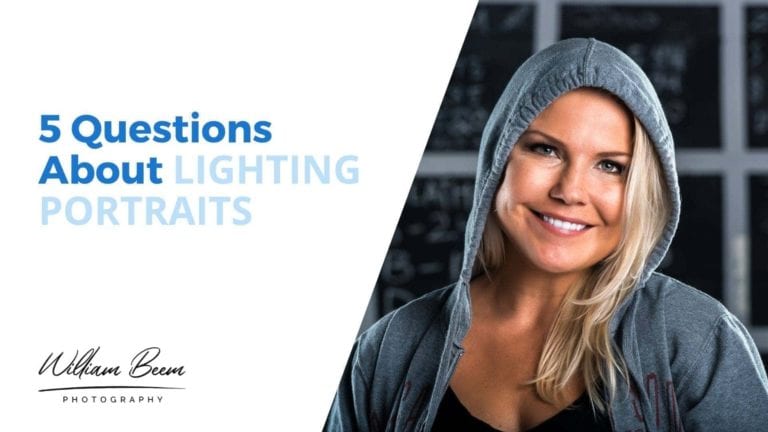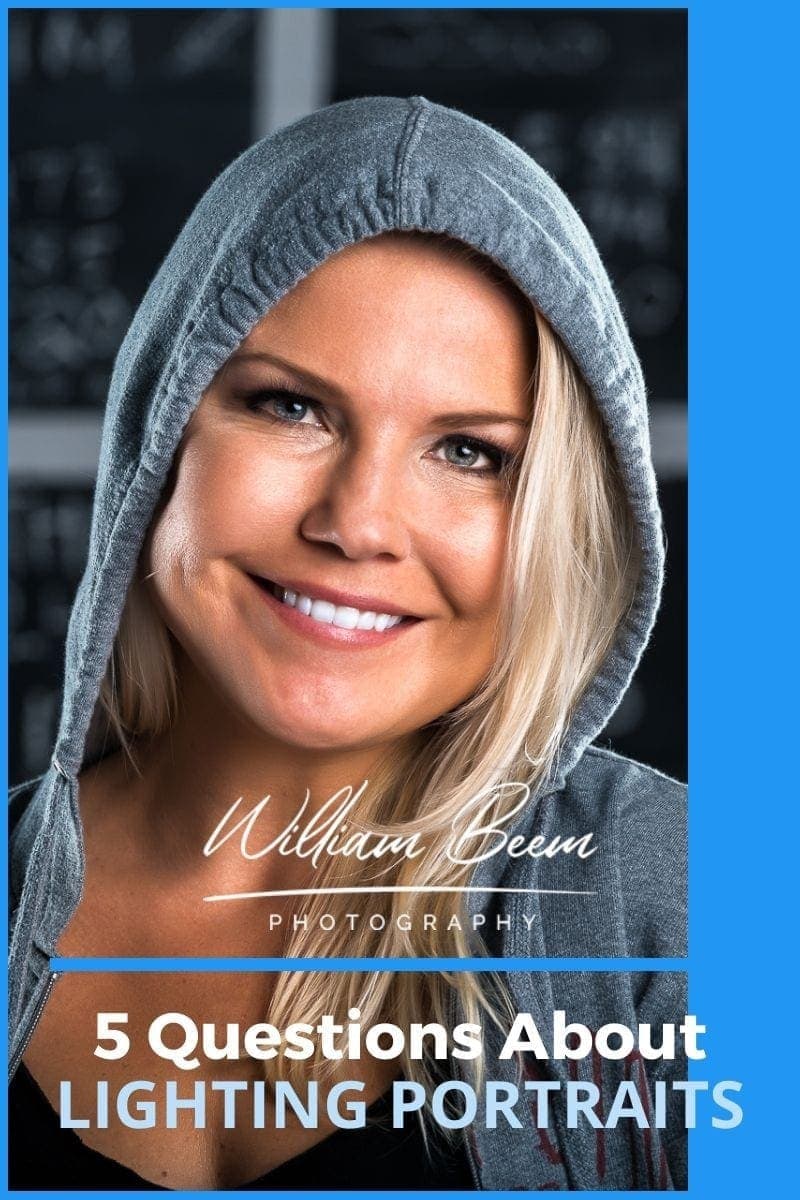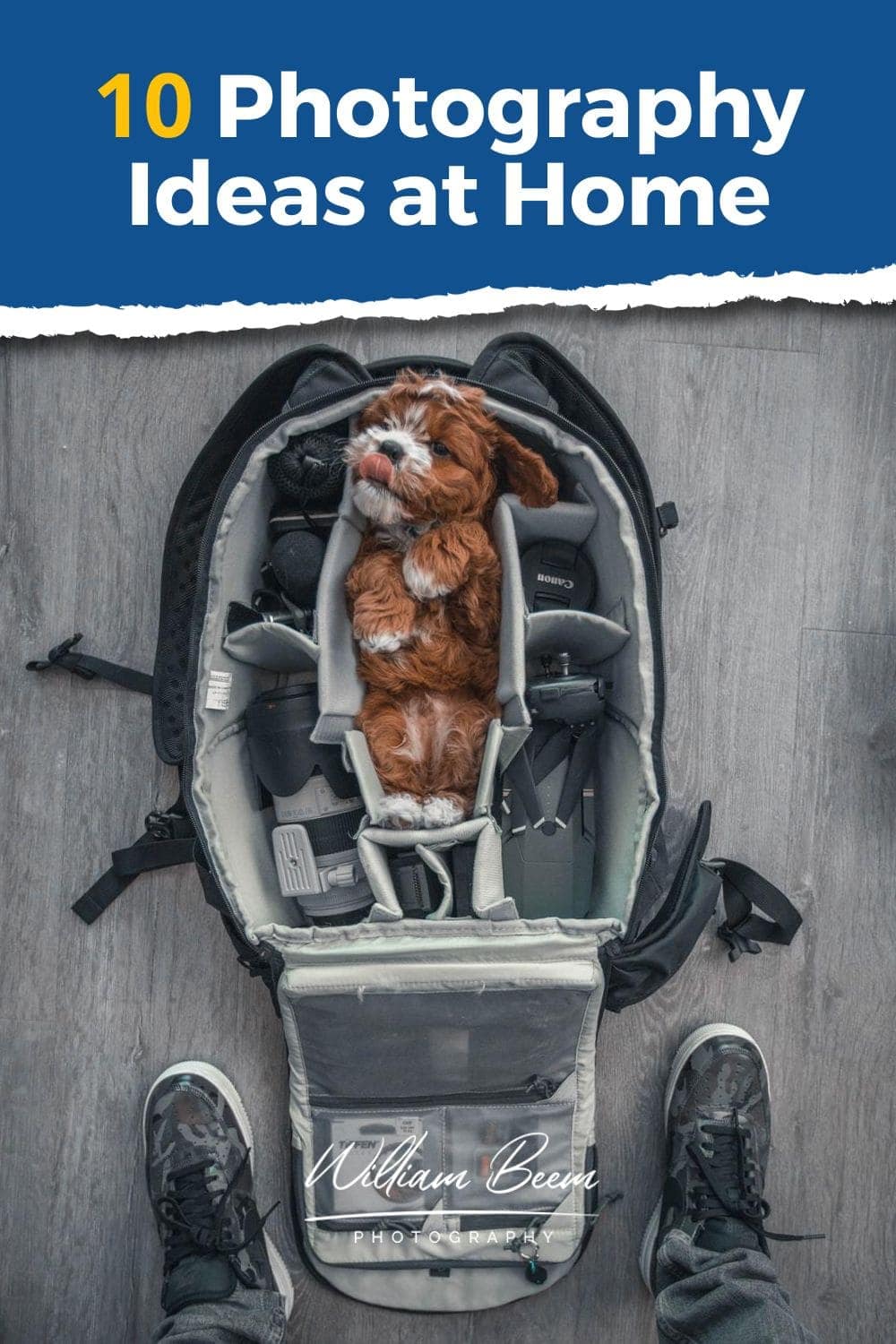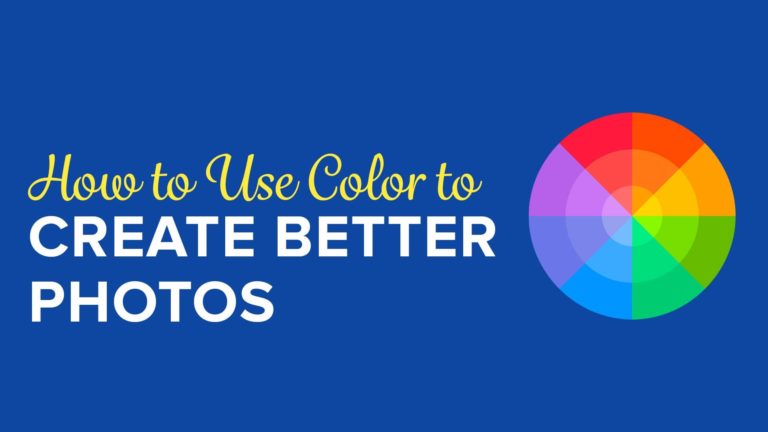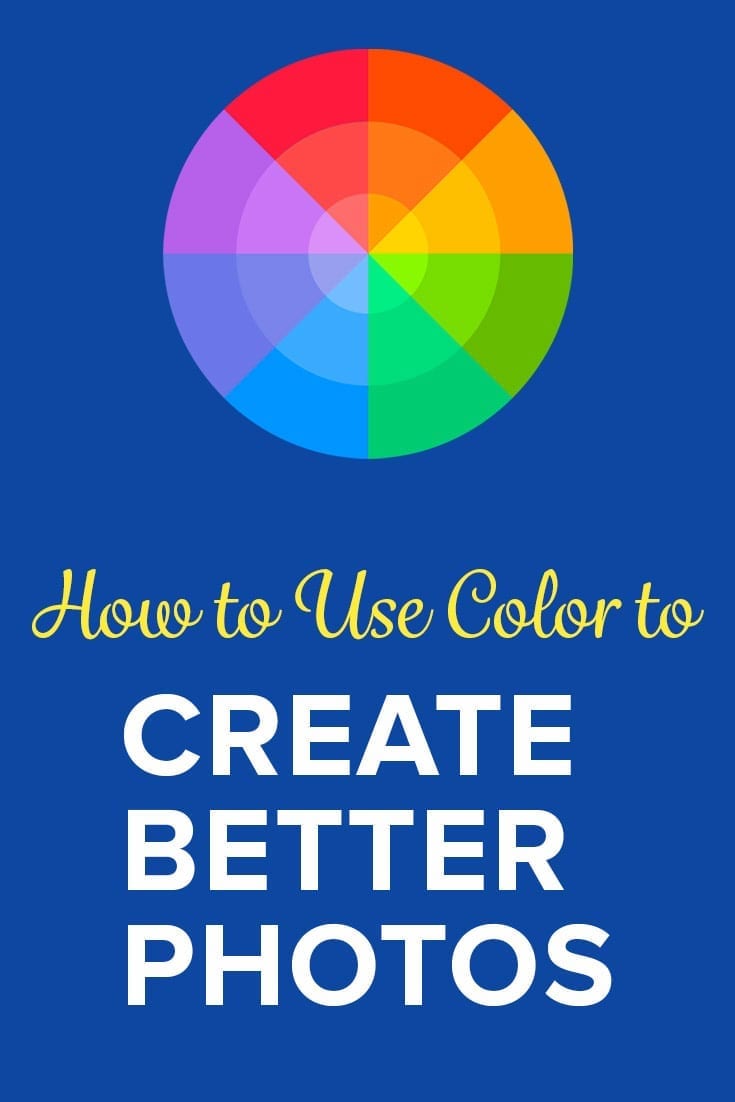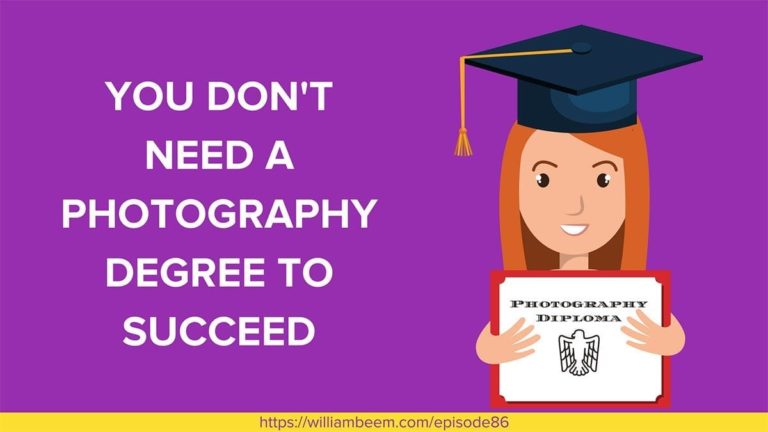Affiliate Disclosure: We earn a commission if you purchase through one of our links at no additional cost to you.
It’s easy to believe you have no time for photography, especially in 2020. We have a plethora of restrictions on us, and they do get in the way.
However, I think the excuse “I don’t have time” is really just code for a deeper issue. In most cases, I think it really means that we aren’t confident in our photography. That lack of confidence comes from a lack of progress.
What’s the Real Reason You Have No Time for Photography?
If you don’t think that you’re good at something, it’s hard to spend time doing it. Saying “I don’t have time” is a plausible excuse that people use for a lot of different activities.
- Exercise
- Cooking
- Photography
If you want to master something, you put in the time. When you’re making progress, you want to put in the time.
20 years ago, I wanted to get in shape. Yet I hate exercise. My solution was to join a local gym and hire a personal trainer. That was expensive, but I needed both guidance and accountability.
Walking into a gym when you’re out of shape is a very daunting experience. Everyone else looks good and they seem to know what they’re doing.
I stuck with it, though. That experience got me in the best shape of my life (which since lapsed) and changed how I view things in life. Although I’m not working out now, I’m a better man for everything I learned for more than a decade of exercise.
As I started making progress and saw my body change, I wanted to do more. I experimented and asked my trainer to throw in new things.
Photography isn’t really any different. We’ll discuss some ways you may be able to find some time and have fun taking a few photos.
Timestamps
We're finally into September of 2020. This has been a really odd year for a lot of people in the things that they want to do. And I've come across this a few times. People saying, you know, why haven't you taken any photos? And they say, I don't have any time. So that's what we're gonna talk about today on I Like Your Picture.
I'm William Beem welcome to, I Like Your Picture. The show that helps you improve your photography with visual storytelling. What is visual storytelling? It's a method of approaching your photography with a knowledge of who you're trying to serve with your photos and what emotion you want to make them feel. We encourage you to concentrate on your subject, light and background to create a photo.
Your audience loves I'm glad you found us. Hi, I'm William Beem. Hi, I'm Lee Beem. And Lee Beem doesn't have any alcohol this time when she's podcasting. So who knows how it's going to turn out? Hey, we were just talking about people who say they have no time for photography and this year I really do get it because it's been challenging for me. And particularly as portrait photographers,
there are people who are afraid to go out and have their photos taken. Even though I think a lot of us have time that we didn't anticipate it just doesn't feel like we have time to do the things that we want to do. There were a couple of things that we wanted to talk about, and we'll help you to have some takeaways. And we're going to go over the reason why you don't have time for photography,
how to find some opportunities and some ideas to help make the most of your time. Let me start off with the first one. And I think this is the reason why some people say I don't have time for photography is kind of the same reason they say, I don't have time to go to the gym. I don't have time for almost anything else where they have an interest,
but they aren't making progress. They don't feel good about their ability to do what they want to do. And I don't care if that's photography or exercise or cooking or anything else. If you don't think that you're good at what you're doing, it's hard to make the time to go do it. You don't want to go do it. The task ahead seems intimidating.
I think that notion of I'm not good enough is comes out as an excuse as I don't have time. And I don't worry about that for a lot of people. When I say I'm not good enough, or even if they think of themselves, then I'll say to anybody else, none of us were good enough when we started. No, that's true.
You get good enough by starting. And that's really what it is. I think I'm not good enough really translates to, I don't have confidence with my photography and saying, I don't have time for photography is an easy way out of not facing up to that reality. I agree. I think there's a bunch of things that go on with, I don't have time.
I mean, the reality is that my life at this stage should be less demanding that it was 10 years ago and it's not. And I think part of it is because you used to go out and do your thing during the day. You had your busy life and your responsibilities, then you came home and you had your responsibilities in the home or with the family or whatever else you were doing.
But when you came home, you left the outside world for the most part outside. I think now everybody's... the outside world lives 24 hours a day in your home life, in your pockets, in your car and your head, you just, it's harder to escape it. I think it's just, there's generally this feeling of being overwhelmed because you cannot go somewhere and be left alone.
No, you really can't. There are reasons why some people don't have time. If you have a job, you have a family or you have some kind of obligations that are really taxing and draining you and you just don't have the emotional support to just say, okay, now I've got to go do one more thing. And that's to some people, photography is their escape to other people.
It's like, okay, now I've got to do this. It depends which side of the fence you're on. And I definitely get it for the people that have a lot of obligations. You know, I've got a business to run. I have a family that I'm supposed to support, but other than that, I'm lucky that my business involves photography. So I don't really have the same excuse,
but I remember what it was like when I was working a corporate job. It drained my life out of me. And when I got through with work, all I wanted to do was go to the living room. And that was my escape. Well, you need that transition as well. When you, you know, when your mind is being stretched in a hundred different directions.
So even if your job's physical or whatever you're doing during the day, maybe you're taking care of the kids at home. I mean, now with a lot of people homeschooling, you actually need that decompression stage. But I think it's during that decompression that you realize just how tired you are and that's because I've been there. I mean, I still go there sometimes.
So it's, it is a difficult thing to do, but I think something else that I realized, because I look back to when, you know, when, when Tové was younger, I was, I found it hard because I did work long work days. Then there were kids activities afterwards, and then I needed to give some times to her. And I went to time with her.
The other side of it was, if I went out to take photos, what did I do with a five year old or a six year old or a seven year old? If it's not interesting to her, I've got to keep an eye on this. You know, this little person then keep them entertained as well. So that also became difficult. And what I realized is that I was setting my expectations by looking at people I admired who were photographers,
who maybe this was their business that I didn't even know. I never thought to ask for, or maybe they didn't have any family ties attached, whether there were responsibilities that drained in the same way on their time. So I assumed that because somebody else was going out and spending every single weekend or six hours on a day going out and taking photos that that's what it took.
And that's really what I could afford was maybe an hour a week if that, but that's what I could put into it. And I think that's the other thing. It's not a set number of hours that you have to put in and you have to get rid of that thought your head, that I have to put in so many hours to get better at.
That's not the case that you know, the maximum hours that you can commit are not going to be the same as somebody else's No, you can't compare yourself to somebody else. You don't have the same life. You don't have the same responsibilities. You don't know what's going on in their life. And they don't know what's going on in yours. For me to come over here and say,
the reason you don't have time is because you don't feel confident. I think there's some truth to that for some people. I think other people can rightly say, I have got so much going on right now. I don't have the time. Do you want to make the time? And I think this is a decision point that some people need to make. If photography really isn't that much of a calling for you.
It's okay to admit it. Don't feel guilty if you don't go out because you really don't want to, or it's not that important to you. If you have other passions in life, or if you have other demands and photography, just isn't ready for you at this time. It's okay to say, you know what? I'm not a photographer right now.
The other thing you could do is also spend the time learning about it. So maybe you are tired or you are housebound. I think everybody's kind of in some way on house arrest, to an extent right now. You know, you can use that time. I know that I spend a lot of time reading books and going on forums and asking questions and learning about things.
And I think even though I couldn't put most of those things into practice at the time, what I did do over time was I built up some kind of basic understanding. So it was somewhere way back in my head that I was able to call on it and just brush up and, and kind of remind myself at a later stage. So those things were still there.
I also learned probably more than anything else, what to avoid. I got to have a really good understanding of how some of these forums work. I think you get a better overview, so maybe you don't have time to go out and take the photos, but you can still use the time to sit and read up and learn about it. Cause that doesn't go to waste. Yeah,
and that comes back to what we were talking about is making progress with your photography. Sometimes you have to make progress, but that doesn't necessarily mean that you have to take the time to go out, pick up your camera, go out someplace, find a subject and take photographs. Part of making the effort and finding your objectives is a bit of education and a bit of research. Lee
and I kind of make a game of this. We try to sharpen our eye by looking at other photographs all the time. We look at different scenes, we're looking at say, would you do this? Or would you do that? How did they do this? And we're kind of always exercising our mind in with that kind of photographers. eye, by looking at other people's photographs and works.
It could be advertisements or it could be something that we see online or in a photography book. But we're always thinking as far as the light, the composition and other elements, posing, if that's part of it. We're always looking at what did somebody do? How would we do it? Can we do it better? And we're looking at our old photographs and doing that as well,
too. Yeah, absolutely. And the conversations are interesting because we've got different interests in different genres. We've also got very different attack plans on that, or you've got an attack plan and I've got an attack wing it. I kind of jump and kind of figure out where I'm going on the way down. Here's like one big difference between us. I am very much into visualizing the result that you want,
whereas Lee is into feeling her way through what's there to see what photograph she's going to get. Yeah, I get this kind of. Sometimes I get this big result, but how I'm going to get there is I jump in and start without plotting it out. And I figure my way around. And usually I'd say most of the time, my end result is completely different to my original vision.
So I use my vision as a starting point. Whereas you use it as a guide to kind of keep you on track and both are good ways. It depends on your personality, I guess. Yeah. In my case, I know what I want. I remember what it took me to get that shot that's hanging on the wall next to me inside the vehicle assembly,
building it in at the Kennedy Space Center. And I knew exactly where I needed to be because there's like these little lines running down, kind of like you would see in the middle of a road. And I knew that my camera had to be right there. And there was someone in my way and it took some polite, angling and effort to get that person out of the way. I was in there with a bunch of photographers,
they're all lining up front to get a shot. I thought I don't want any shot. I knew exactly which shot I wanted. And I got it. I kind of annoyed the, the guide that was with us for a little bit, but as far as I'm concerned, that was the reason I went there. I wasn't going to walk away without that shot.
His impatience was not really my concern at the time. Well, he's forgotten about you. Well, yeah, he doesn't even know my name. He doesn't know what the photograph is and everybody's happy with the end results. But there are a couple of ways that you can ramp up your photography. One of the things is to find ways to photograph where you are. Here in central Florida is not exactly what you would call a landscape lover's dream.
We drive around, we see nothing but roads and strip malls and power lines. However, I have a friend and I've mentioned him on the show before his name is Reg Garner. So go to reggarner.com If you want to see some of his work. He has this small little boat. It's like a little bit bigger than the canoe. And he takes it and
he goes in the waterways and he shoots sunrises, sunsets. He shoots the Cypress trees. He gets these incredible views of old world, untouched, Florida. And he's making a killing at it, selling these things to local businesses. Matter of fact, he's just now setting up a gallery of his art in downtown Sanford, which is probably about 30 miles or so North of Orlando.
Look, this is a guy who's runs his family business in Orlando and he lives in Sanford. So he's got that 30 mile drive on I-4 in the morning to go down there and then back in the evening, but come weekend or whatever days he gets off that boat. And he goes out there and he starts taking these photographs of things that most people have never seen.
You know, what's one of the most important rules of photography? Put your camera someplace interesting. In his case, in his case, all it took him was a boat and a couple of times using a drone, but he found things that are beautiful in Florida, where I look around and I just see crap. Yeah, well, now that's an example of going out and doing something.
Let's say that you don't get to go I'll so you kind of stuck with your yard and what's in the house for the most part, especially if you work long shifts during the day and you get back and you've got reasons why you cannot go out. Maybe it's family, maybe it's small kids, maybe you have other responsibilities. It doesn't really matter if it's your responsibility,
that is important. That's going to be your priority. You just got to figure out stuff in the house and maybe it takes you slightly away from your preferred genre, but you can actually use the different genre, different type of photography to work on some basic aspects of creativity, on mastering your camera, on working with lights. And you can take those and apply them once you're able to go out and do the pictures you want to do.
And we have a few examples of that. Lee goes to craft stores and Home Depot and places like that. And she gets little things that I look at them and say, what are you going to do with that? And she'll say, just wait and see. She comes home. She puts a little set on our dining room table. She's got light coming in from the window and she's put all these things together for her tabletop photography.
And you look at them and you would think that you're in some old world kitchen or just some set that was designed for photography. And well, it was, because she has these different backgrounds, pieces of cardboard, she's got dried flowers, she's got things that she takes from the kitchen with little teaspoons and cinnamon or something, flour. And she'll bake some blueberry muffins,
which are delicious by the way. And she'll put those down there and then she'll build the set around it and think, what colors do I need? What is complimentary? What is analogous? Where does the light come from? How much light do I need? She's got this really strange way of taking an old cardboard box to block off the light on the back of the set and also helps prop up her background.
And then she'll put some burlap over it. So it looks like, you know, an old country kitchen scene. And these are not the only things. I mean, besides, you know, going off in unknown areas with presuming you have a boat or a way to get out in the woods or wilderness, you can build things at home. You can draft your family.
There's a local photographer. You may have heard of her name is Gilmar Smith. And that's Gilmar spelled with a G. She's got a couple of kids and she does composite photography. She'll take photographs of them in the backyard. And then she'll bring them into Photoshop. And she'll put a rocket on the back of one kid that's leaning over, the other one's,
lighting the rocket. And it's just an imagination gone wild in Photoshop. But she takes these photos just with her family and puts them in interesting situations. There are other people who've done this with their children as well. These are some people out there who dress their kids up like superheroes, whether Wonder Woman or Batman. And then they composite them into these amazing scenes.
So if you've got, you know, some kids around or toddlers or even older kids, bend them to your will. Use them for your subjects. Kids can be great subjects. I know that when you try to pose children for some thing for a formal photo-shoot, it's always, well, it's always fun and games and you have to roll with it, but you do something that's interesting to them or they are.
They're not just the subject, they're their hero in your story. Um, I, they are very willing to, to accommodate, just make sure that you get all your prep and stuff as much as you can out of the way first and try and do you know, your test shots for lighting and composition. So like you only have to tweak because their attention span,
they're thinking about themselves. I mean, children's worlds revolve around themselves. They're not, that's not bad. That's natural. So to keep their attention, you have to, Well, you have to get him in this world of make believe. And they get taken out of that world of make-believe you say, okay, I've got to adjust this light. I'm going to do this.
You know, whatever technical thing that you need to do. You need to get all that straight and then concentrate on the kids being in the world of make-believe. Hey, you got it. So when you're adjusting the like, you need your really like open up your imagination, tell them, okay, we've got a problem with the spaceship. Hold on.
And you know, that's another way to do it. Now, as far as saving time, one of the things that you can do is batch produce your photos. In other words, take a lot of photos at one session. So that way, if you're setting up lights, or if you're having to go to a location, get as many interesting and different photos as you can.
You don't have to process them all the same day. You don't have to share them all the same day. Wherever you are, that you're taking those photos. How many things can you go through? When Lee sets up things on her kitchen table, many times she'll do more than one. I mean, she may only do two, but sometimes she'll go through and do maybe half a dozen photos.
Yeah. I mean, the other day we were laughing or I was laughing at myself because usually I'm reasonably quick, as far as, you know, setting up and taking down the scene and getting my photo. I mean, I, I was in that kitchen for about an hour and a half and I came away with two photos, which is what I wanted.
But the other side was for the one photo I had to make some soup. I have to bake some flatbreads and also have to bake the blueberry muffins. And then I had to wait for them to cool. So there was kind of a bunch of stuff going on, but it was a rainy day. I was, I couldn't go anywhere outside to do anything.
So it kind of figured. The last thing I wanted to say, and this is difficult to say this year, is make it social. Get some friends, go off and take some photos. It doesn't necessarily have to be about the photography. It's just about being with your friends, doing something you both enjoy. Yup. I agree. And you know, if you're not able to do that,
we've got a, we've got a photography group. We do. And matter of fact, if you want to join us, you can go to Facebook. We set up a group for the podcast and the YouTube channel that I'm working on. It's a group called, I Like Your Picture. If you go to facebook.com/groups/ilikeyourpicture, then please, you're welcome to join us.
There's only three questions that you need to answer. We kind of made it a private group just to keep the spammers out. And the people that are not truly interested in. Each question is more daunting than the last. No, actually the questions are really simple. It's just basically, it's like, what kind of genre photography do you like? You know,
what software do you use? And what's your biggest obstacle? All that really does is one. It keeps the people out who, who really don't belong there. In other words, the spammers and the people who just want to go stir up stuff that they don't know. But the people who are generally interested in photography, it's a small group right now.
We just started it last weekend. We hope you'll join us. Go to facebook.com/groups/ilikeyourpicture. And I hope to see you there. Thank you so much for joining us on this episode of, I Like Your Picture. This is episode 233. So show notes and a link to the Facebook group that I mentioned are going to be at Williambeem.com/episode233.
Hey, this is really a challenging year for us. I never thought that it was going to be going on this long. And I gotta say, even my own photography has kind of suffered the longest 20 years of our life. It is. But I think that if you take some time and look for ways that you can have photography,
be part of your life, you'll find more photography. Trust me. The key is to make progress. It doesn't matter if you're trying to cook. If you're trying to get in shape at the gym, when you see yourself making progress, you want to spend more time doing it. And I hope that everything we've said here is helping you get to that goal.
We'll see you again next week.
Related Links

